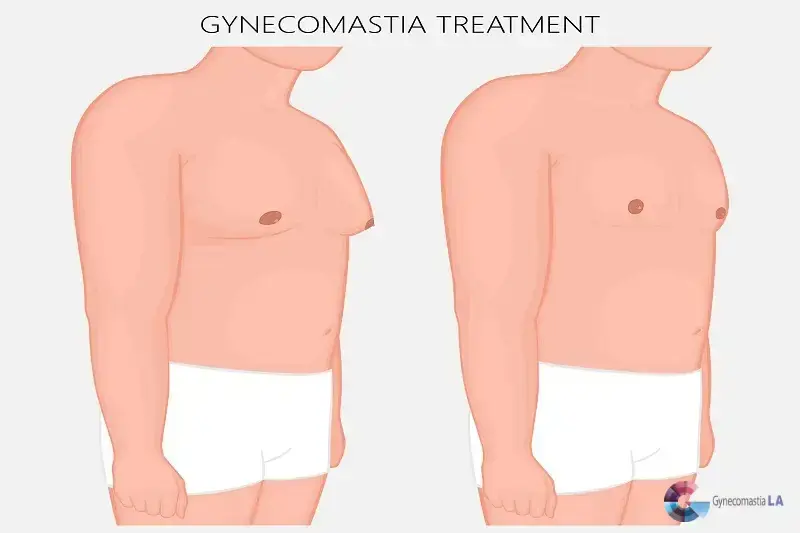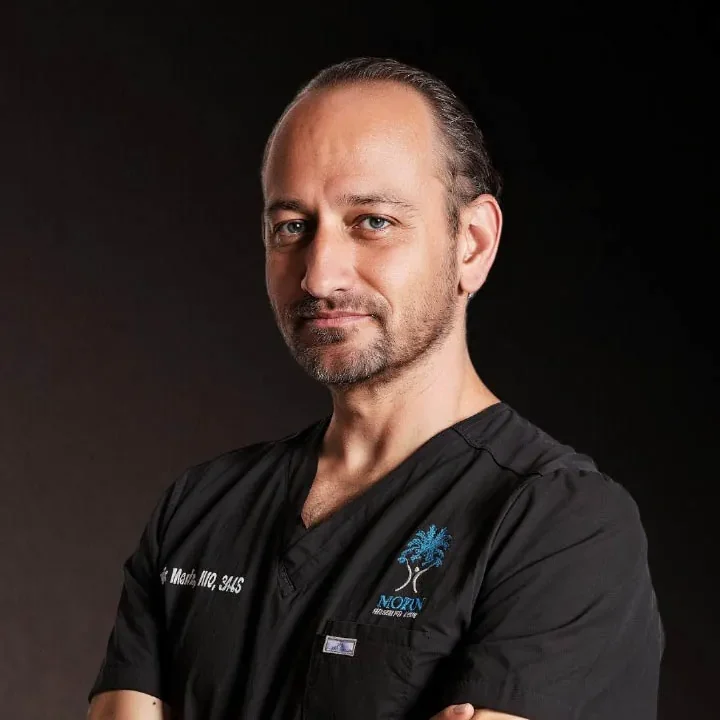Table of Contents
For many men, the presence of enlarged breast tissue can be a source of confusion and concern. Gynecomastia, the medical term for this condition, raises the question: Is gyno permanent? Understanding the nuances of gynecomastia is essential for anyone grappling with this common ailment.
This condition can result from various factors, ranging from hormonal changes during puberty to the impact of certain medications and lifestyle choices. While some cases may resolve on their own, others can persist, leading many to seek answers about their situation. Knowing when gynecomastia might naturally go away or when intervention is necessary is vital.

This article will delve into the permanence of gynecomastia, exploring its causes, the likelihood of it disappearing naturally, optimal treatment options, and much more. If you’ve been curious about whether gynecomastia will linger or not, read on to uncover the facts.
Does Gynecomastia Go Away? Yes and No
Gynecomastia, or the enlargement of male breast tissue, can be temporary or permanent. In most pubertal cases, it resolves naturally within a few months to a few years, with 90% of cases requiring no treatment. However, severe forms like macromastia may need surgical intervention, as they seldom resolve on their own.
Factors such as hormone imbalances, health conditions, or certain medications can also trigger gynecomastia. When this occurs, addressing the underlying cause may lead to improvement. Persistent gynecomastia, typically linked to glandular breast tissue, is less likely to respond to lifestyle changes or weight loss alone and might require surgical options.
Key Points:
- Temporary: Pubertal gynecomastia often resolves naturally.
- Permanent: Macromastia and persistent types might need surgery.
- Treatment: Correcting hormone imbalances or stopping certain drugs can help.
For those cases where excess tissue remains, options such as gynecomastia surgery or cosmetic procedures can offer a more permanent solution to reduce enlarged breasts.
Does Gynecomastia Go Away Naturally?
Gynecomastia, characterized by enlarged breasts due to enlarged breast tissue or glandular tissue, often does not resolve naturally. In adolescent boys, hormonal imbalances typically cause gynecomastia, and it may diminish as hormone levels stabilize during adulthood. However, persistent gynecomastia, especially from genetics or aging, may require medical intervention or breast reduction surgery.
The condition can be confused with pseudogynecomastia, which involves fatty tissue rather than glandular breast tissue. Weight loss might reduce enlarged breasts if excess tissue is due to obesity, distinguishing it from true gynecomastia. In many cases, gynecomastia progresses in phases and may resolve within six to twelve months, though it can leave excess skin or scar tissue.
Certain health conditions, like chronic liver disease or issues with adrenal glands and pituitary gland, may hinder natural resolution. A tailored treatment plan involving lifestyle changes or surgical treatment may be necessary for cases with underlying medical conditions. Persistent cases often benefit from surgical intervention or cosmetic surgery to address excess skin and tissue post-surgery. Understanding the root cause can guide effective treatments for those experiencing discomfort or aesthetic concerns.
When Gynecomastia will go away

Is gyno permanent? Gynecomastia often resolves on its own, particularly in teenagers, as hormone levels stabilize. For most males, the excess breast tissue reduces or completely disappears within weeks to three years, especially if linked to hormonal fluctuations during puberty.
In adults, persistent gynecomastia may not resolve without intervention. If the condition continues, it may require surgical treatment to remove glandular breast tissue and excess tissue. Gynecomastia surgery offers a long-term solution by eliminating excess breast tissue that typically doesn’t regenerate.
Lifestyle factors like weight management play a role in preventing recurrence. Even after successful breast reduction surgery, maintaining a healthy lifestyle can help keep hormone levels balanced and reduce the chance of enlarged breasts returning.
When Gynecomastia won’t go away
Gynecomastia, a condition characterized by enlarged breasts in males, often results from hormonal imbalances, particularly in testosterone levels. While weight loss and addressing underlying health conditions like Chronic liver disease can help, some cases involve persistent gynecomastia requiring further intervention.
True gynecomastia is marked by an excess of glandular breast tissue rather than fatty tissue, making it more difficult to resolve without surgical treatment. When lifestyle changes and medical treatments fail, a treatment plan may involve gynecomastia surgery. This surgical procedure removes excess breast tissue, glandular tissue, and sometimes skin, providing a permanent solution.
Several factors can lead to persistent gynecomastia, including certain medical conditions affecting the adrenal and pituitary glands, as well as the use of Illicit drugs. Surgical intervention, such as breast reduction surgery, becomes necessary when these factors are present. Post-surgery, hormone levels should be monitored to prevent recurrence. While persistent gynecomastia can be challenging, seeking cosmetic surgery can effectively address enlarged breasts when other methods do not succeed.
How to Treat Gynecomastia?
Gynecomastia is a condition characterized by enlarged breasts in men due to hormonal imbalances, specifically when testosterone levels are lower relative to estrogen. Treatment starts by addressing any underlying medical conditions, such as pituitary gland or adrenal gland disorders. Lifestyle changes, including weight loss and avoiding illicit drugs, can also help reduce excess fatty tissue, though they may not fully resolve true gynecomastia, which involves glandular breast tissue.
In cases of persistent gynecomastia, it’s crucial to explore comprehensive treatment options. Consulting with a healthcare provider ensures an accurate diagnosis and tailored intervention plan. For those asking, “Is gyno permanent?” the answer lies in understanding the interplay between hormones, lifestyle, and medical intervention. Gynecomastia surgery remains the most definitive solution for long-term results.
For persistent gynecomastia, surgical intervention is often necessary. This could involve liposuction or vaser to remove fatty tissue or a more comprehensive breast reduction surgery to excise glandular tissue. Each surgical procedure is tailored to the individual’s needs and the amount of excess tissue and excess skin.
Post-surgery, a treatment plan may include monitoring hormone levels to prevent recurrence. It’s important to consult healthcare providers to diagnose any health conditions and determine the best course for surgical treatment if necessary. Chronic liver disease and certain medications may also need to be evaluated as potential contributors to hormone imbalances. For many, surgical treatment will provide significant improvement.
Causes of Gynecomastia

Gynecomastia can be caused by various factors that lead to hormonal imbalances, resulting in enlarged breasts in men. Key contributors include natural hormone changes, medications, substance use, and lifestyle choices.
Is Gyno permanent? Natural hormone changes
During puberty, hormone levels fluctuate, and temporary gynecomastia may develop due to imbalances between testosterone and estrogen. Aging also affects hormone levels, potentially causing persistent gynecomastia in older men.
Medicines
Certain medications can contribute to gynecomastia by affecting hormone levels. These include some anti-androgens, antidepressants, antibiotics, ulcer medications, and cancer treatments. Always consult a healthcare provider regarding any potential side effects of your prescriptions.
Recreational drugs, illegal drugs, and alcohol
Substances like marijuana, heroin, anabolic steroids, and excessive alcohol consumption can interfere with hormone levels, contributing to the development of gynecomastia. Avoiding these substances may help prevent or reduce the condition.
Lack of exercise
A sedentary lifestyle can lead to excess fatty tissue accumulation, sometimes mimicking gynecomastia. Regular physical activity and weight management are recommended to help reduce overall body fat and improve hormone balance.
Is Gyno Permanent Summary?
in conclusion, gynecomastia, commonly known as enlarged breasts in males, is often not permanent. This condition results from hormonal imbalances, where testosterone levels are lower than estrogen levels, leading to the development of excess breast tissue. True gynecomastia involves the presence of glandular breast tissue, whereas excess fatty tissue characterizes pseudogynecomastia.
For many, gynecomastia can resolve naturally within months as hormone levels stabilize, especially during puberty. Weight loss can help reduce excess tissue if it involves fatty deposits. However, persistent gynecomastia, often due to factors like chronic liver disease or medical conditions affecting the adrenal or pituitary glands, may require intervention.
Surgical treatments, such as gynecomastia surgery or breast reduction surgery, can effectively remove excess tissue and glandular components for a long-term solution. This surgical procedure is generally considered when gynecomastia does not improve with non-surgical treatment plans. Post-surgery, maintaining healthy hormone levels is crucial to prevent recurrence. In cases related to illicit drugs, discontinuing use can also lead to improvements. Consulting a healthcare provider is essential to determine the appropriate treatment plan based on the underlying health conditions.
For those wondering, “Is gyno permanent? the answer often depends on the underlying causes and the treatment approach. By addressing the condition promptly and effectively, many individuals can achieve lasting relief and enhance their quality of life. You can schedule an appointment with our expert gynecomastia specialist to receive the best treatment available.

Dr.Babak Moeinolmolki
LA Cosmetic Surgeon Dr. Moein is board-certified by the American Board of General Surgery.

